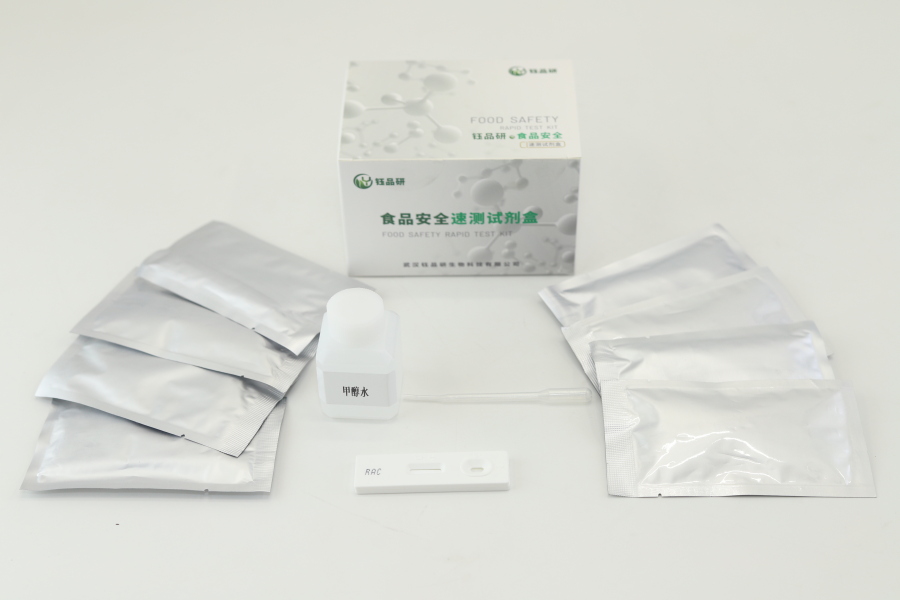Carbofuran, as a highly toxic pesticide, has caused many food safety problems due to residues in agricultural products, so rapid and accurate detection of its residues has become an important link in food safety supervision. Among many detection technologies, Carbofuran colloidal gold rapid detection card has become a common tool for on-site screening and initial screening due to its unique advantages.
So, what exactly is Carbofuran colloidal gold rapid detection card? In short, it is a rapid detection product based on colloidal gold immunochromatography technology, mainly used for qualitative or semi-quantitative detection of carbofuran residues in foods (such as vegetables, fruits, grains, soil and other substrates). The core principle is to use antigen-antibody specific binding reaction: the detection line on the detection card is coated with carbofuran-conjugate, the quality control line is coated with sheep anti-mouse IgG antibody, and the colloidal gold marker is anti-carbofuran monoclonal antibody. When the sample solution is added to the sample well, it will move along the chromatography strip. If the sample contains carbofuran, it will bind to the colloidal gold-labeled antibody and prevent it from binding to the carbofuran-conjugate of the detection line. If the sample does not contain carbofuran, the antibody will bind to the conjugate of the detection line to develop color, and the quality control line is always colored to prove the detection is effective.
As a rapid detection tool, its advantages are very prominent. The first is "fast", the whole detection process usually only takes 10-15 minutes, without complex instruments, and the operator can get started with simple training; the second is "accurate", the sensitivity can reach 0.1-1 ng/mL, which can meet the limited requirements of food safety standards for carbofuran residues; The third is "stool", which is small and portable, and can be used for laboratory primary screening or on-site rapid screening, such as farmers' markets, catering enterprises self-inspection and other scenarios; The last is "provincial", which has low cost and does not require expensive equipment and reagents, and is suitable for large-scale sample detection.
In practical applications, carbofuran colloidal gold rapid detection card is widely used in agricultural production bases, food processing enterprises, regulatory departments, etc. For example, vegetable growers can quickly detect pesticide residues before picking to avoid unqualified products from entering the market; food processing plants can conduct initial screening of raw materials to prevent carbofuran exceeding the standard from entering the production process; market regulators can also use it to quickly identify high-risk samples in daily sampling and improve regulatory efficiency.
Of course, it also has certain limitations. It is mainly used for qualitative or semi-quantitative detection and cannot replace the accurate quantitative results of precision instruments (such as high-performance liquid chromatography and gas chromatography). But as a rapid screening tool, it plays an irreplaceable role in food safety risk early warning and source control.
In general, the Carbovite Colloid Gold Rapid Detection Card is the "fast knife hand" in the field of food safety testing. With its fast, simple and sensitive characteristics, it provides strong support for guarding the safety of the dining table.


